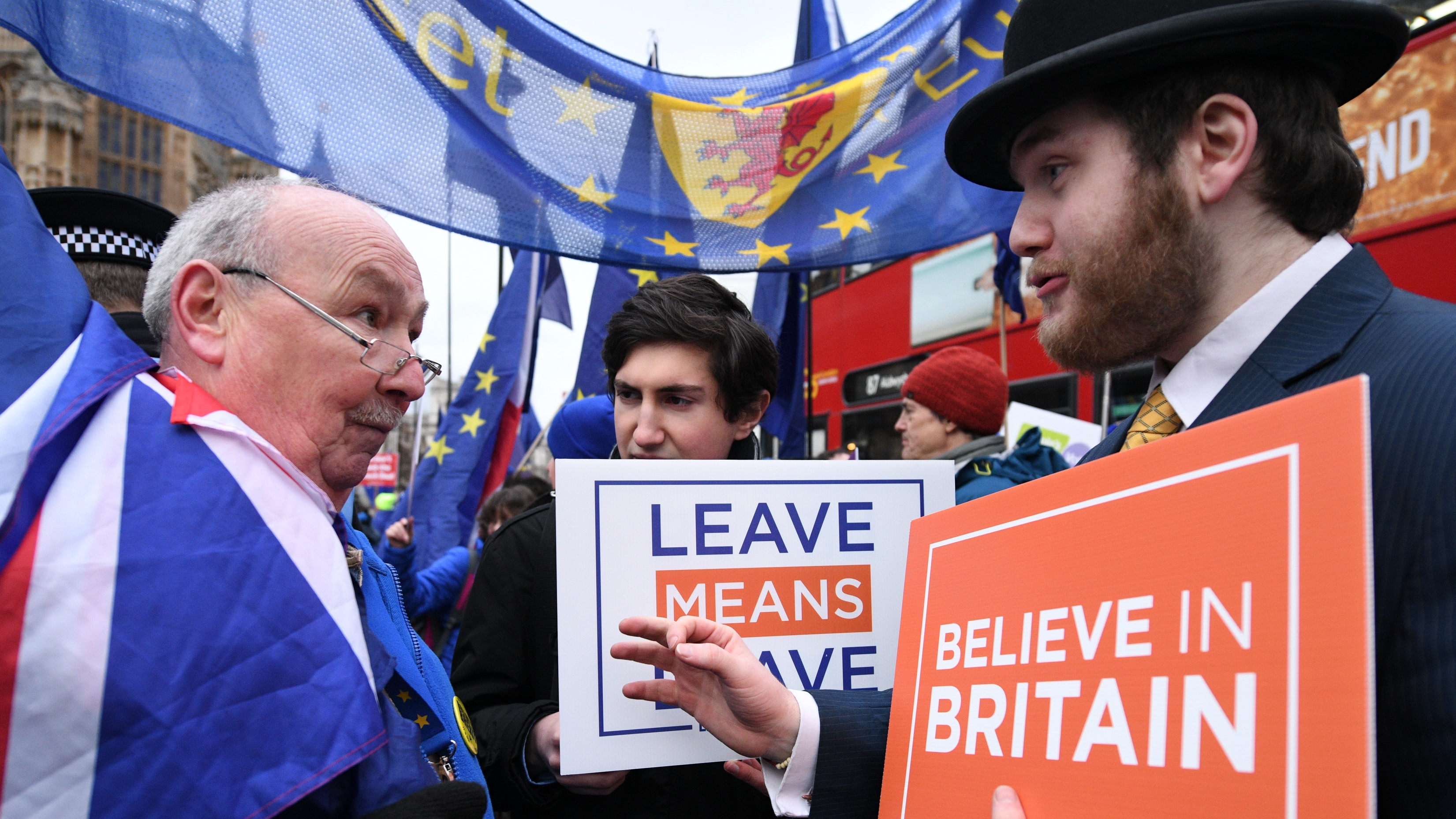Brexit Day: how do Brits feel about leaving the EU?
Polls suggest that attitudes have changed since the 2016 referendum

A free daily email with the biggest news stories of the day – and the best features from TheWeek.com
You are now subscribed
Your newsletter sign-up was successful
Following the Conservatives’ thumping victory in the December general election, Britain will today leave the European Union, three-and-a-half years after the country voted to back Brexit.
As Britain prepares to leave the European Union this evening, public opinion on Brexit, and its likely consequences, remains divided.
Does Britain still back leaving?
The Week
Escape your echo chamber. Get the facts behind the news, plus analysis from multiple perspectives.

Sign up for The Week's Free Newsletters
From our morning news briefing to a weekly Good News Newsletter, get the best of The Week delivered directly to your inbox.
From our morning news briefing to a weekly Good News Newsletter, get the best of The Week delivered directly to your inbox.
Writing for the BBC, election guru John Curtice, professor of politics at Strathclyde University, says that recent polls have suggested there is a “small but consistent majority” in favour of remaining in the EU.
Averaged out, the last half dozen polls before the December general election put Remain on 53% and Leave on 47%, according to Curtice.
Although most Remain (88%) and Leave voters (86%) would vote the same way as in the 2016 referendum, those who did not vote in 2016 backed Remain by two to one (53% to 26%).
Last November, a survey of 20,000 voters predicted an eight-point victory for Remain if the EU referendum were held again.
A free daily email with the biggest news stories of the day – and the best features from TheWeek.com
However, Curtice says “the lead for Remain is too small to be certain that most voters would prefer Brexit was not happening”.
Indeed, the main message from polling is one of division: in an exact inversion of the referendum result, a BMG Research poll conducted since the election suggests opinion put Remain on 52% and Leave on 48%.
EU immigration
A study has found that both Leavers and Remainers have softened in their attitudes towards immigration since the 2016 poll, says the Migration Observatory at the University of Oxford.
Before the referendum, just 24% of Leave voters thought the UK should let in more EU workers. But since the referendum, 31% of Leavers now agree with that statement. Among Remainers, the same figure has also increased from 48% to 53%.
The data also suggest that though immigration was often named as Britain’s “most important issue” between 2001 and 2016, it has tumbled down the priorities list since the referendum. People are now more likely to name Europe and the NHS as their top concerns.
–––––––––––––––––––––––––––––––For a round-up of the most important stories from around the world - and a concise, refreshing and balanced take on the week’s news agenda - try The Week magazine. Start your trial subscription today –––––––––––––––––––––––––––––––
The economy
According to the BBC, in September 2016, just months after the EU referendum, under half of the public (45%) said the economy would be worse as a result of Brexit, while 30% believed it would be better.
But in a survey during the election campaign, over half (56%) said the economy would be worse as a result of Britain leaving the EU. Just 21% believed it would improve, according to NatCen.
Perhaps unsurprisingly, attitudes towards the economic consequences of Brexit differ sharply depending on how people voted in the referendum
Curtice notes that among those who voted Leave, 46% think the economy will be better off than worse off. However, for those who voted to Remain, a huge 84% believe the economy will be worse off.
In a separate study last year, 61% of Tory voters said “significant damage” to the UK economy was a worthwhile consequence to get Brexit done.
This echoed a 2017 poll that found that three out of five Brexiteers would be happy if the British economy suffered “significant damage” in order to be proven right on Brexit.